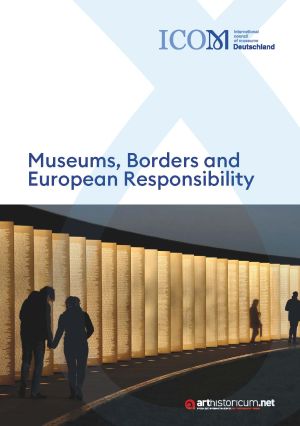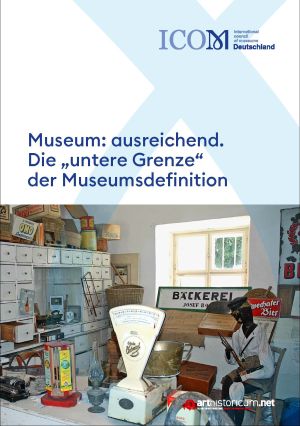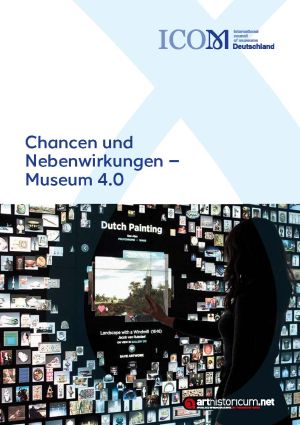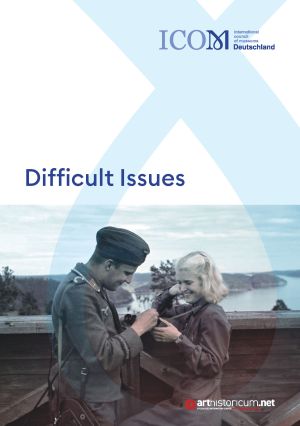ICOM Deutschland
Museums, Borders and European Responsibility: One Hundred Years after the First World War
Museums are the treasure troves of cultural heritage, places of remembrance and self-assurance. But whose stories are they telling, and why? What is remembered in museums, and what is forgotten?
One hundred years after the end of the First World War, museum practitioners and scholars from Europe and beyond reflect anew on the impacts of the war. They consider the central role museums play in the accurate and authentic representation of war, the shaping of commemoration and the preservation of war‘s legacy. They explore difficult issues including diverse and conflicting perspectives of war, political influence and the question of European responsibility.
They argue for the confident inclusion of critical voices and diverse perspectives, and deeper thinking about the impact of violence and dogma on European society.
Museum: ausreichend. Die ‚untere Grenze‘ der Museumsdefinition: Tagungsband des Internationalen Bodensee-Symposiums 2018
The quantity and diversity of museums is increasing; but what about “hard criteria” for differentiating museums and non-museums? The Austrian-German-Swiss conference “Bodensee-Symposium 2018” discussed interesting case studies of drawing this definitional line by outsourcing if the museum staff does not have certain competences, by clear renunciation of one of the five main tasks of museum work because the capacities of the museum are insufficient for realising this task, or by external assessment and certification if this institution fulfils the expected level of museum work (or not). This volume closes with reflections of the museum definition by representatives of institutions which are only similar to museums (a private art collection, university collections, a product archive of a commercial company).
Chancen und Nebenwirkungen – Museum 4.0: Jahrestagung von ICOM Deutschland, 14. bis 16. November 2019 in München. Tagungsband
The challenges of museums in the digital age are manifold, but where to begin in view of the multitude of tasks? The 2019 annual conference of ICOM Germany used interesting case studies – Museum4punkt0, NUMiD, ViSIT (University of Passau), Cadolzburg (Bavarian Palace Administration), Digital Strategy for Museums (State Office for Non-Governmental Museums in Bavaria), and many others – to discuss different perceptions of the field of digitization in cultural establishments, individual fields of action, and difficulties that often arise in museum reality. As diverse as the museums are, the twenty or so examples presented make it clear: If digitization is to be a successful sustainable opening of museums to the digital and thus extend beyond individual digital mediation offers, emphasized Julian Nida-Rümelin in the introduction, it must go hand in hand with a digital mindset and a corresponding work culture. Furthermore, a digital strategy that suits one’s own institution as well as sufficient resources and the support of the museum sponsors are important requirements.
Difficult Issues: Proceedings of the ICOM international conference 2017
Museums are the treasure troves of cultural heritage, places of remembrance and selfassurance. But whose stories are they telling? What is remembered in museums, what is ‘forgotten’? – Around 200 museum experts discussed different concepts of action at the international ICOM 2017 conference. Interim results: In order to secure their acceptance by as many reference groups as possible, museums need to communicate their profiles and environments proactively. They make visible different groups of the population, make their life stories heard and present them as equal parts of a shared cultural heritage.
The conference volume brings together numerous examples from European museums, with which the experts involved would like to strengthen the exchange of expertise and contribute to mutual learning.










